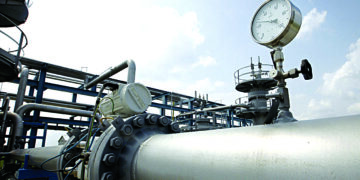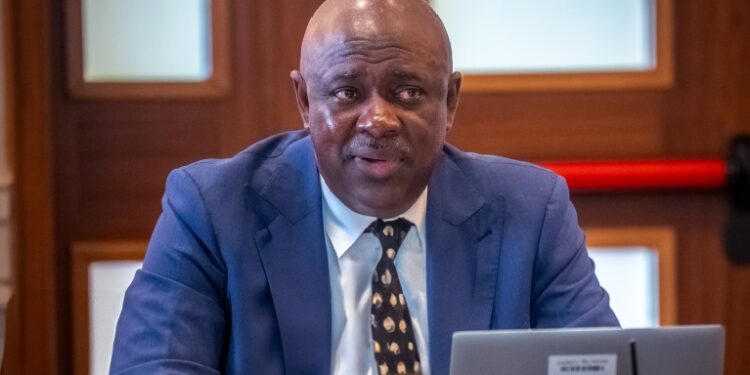By Ebi Kesiena
Nigeria’s Minister of State for Petroleum Resources (Oil), Heineken Lokpobiri, has issued a call to Engineering, Procurement, and Construction (EPC) companies and foreign oil multinationals that exited the country’s energy sector, urging them to return and take advantage of the renewed investment-friendly environment.
Lokpobiri made this appeal in Lagos while addressing participants at the 2025 Nigeria Annual International Conference and Exhibition of the Society of Petroleum Engineers (SPE), Nigerian Council.
Government Has Created Friendlier Investment Climate
According to a statement from the Ministry of Petroleum Resources, the Minister emphasized that the current administration has taken bold steps to restore investor confidence in Nigeria’s oil and gas industry through policy reforms, fiscal incentives, and the full implementation of the Petroleum Industry Act (PIA).
“I would like to use this opportunity to make a strong case to EPC companies that have previously operated in Nigeria and have since exited,” Lokpobiri said. “The current administration has worked tirelessly to ensure a more stable and investment-friendly business environment.”
The Minister explained that the absence of key EPC players has slowed down project execution in deepwater and onshore developments, where complex engineering, technology transfer, and infrastructure expertise are essential.
Former Global Players That Left Nigeria
Nigeria was once a hub for major EPC and service companies that played a critical role in the country’s oil and gas growth. These included:
Willbros Group: an American multinational known for pipeline and facilities construction, which exited after project slowdowns and security concerns in the Niger Delta.
McDermott International – a leading offshore engineering and construction giant that scaled down operations due to reduced investments and delayed Final Investment Decisions (FIDs) in Nigeria’s offshore sector.
Saipem and TechnipFMC – European EPC leaders that significantly reduced their footprint in the Nigerian upstream segment, citing operational bottlenecks and high project risks.
Their departure, according to Lokpobiri, left a vacuum that has hampered infrastructure development and deepwater field optimization, particularly as Nigeria sits on over 220 idle oil blocks, with 59 in deep offshore locations.
Nigeria Positions for Energy Revival
Lokpobiri noted that with President Bola Ahmed Tinubu’s Renewed Hope Agenda, the government has embarked on measures to boost crude oil production, secure energy infrastructure, and incentivize investments in the upstream and midstream sectors.
“With the Petroleum Industry Act and strategic incentives now in place, Nigeria is positioned as a dependable and rewarding destination for EPC companies and International Oil Companies (IOCs),” he said.
The Minister also issued a warning to IOCs holding idle oilfields, stressing that underutilized assets could be reassigned to investors willing to commit capital to field development and production ramp-up.
“We want to see decisive financial commitments to increase production and unlock Nigeria’s deep offshore potential,” he said, noting that reviving EPC operations will also drive local content, create jobs, and enhance technology transfer in the sector.
Meanwhile, Industry analysts say that a return of global EPC companies will accelerate stalled projects, support energy security, and help Nigeria meet its OPEC production targets while expanding foreign direct investment in the oil and gas sector.




































